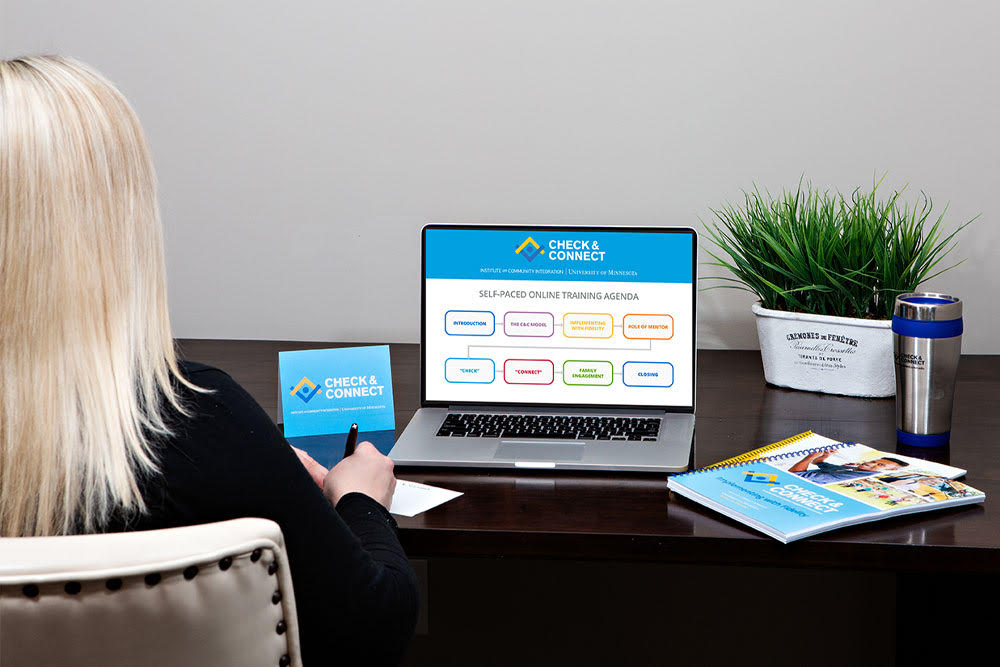
Responding to a wave of truancy and other pandemic-related problems in schools last year, St. Louis County in northern Minnesota will implement Check & Connect throughout most of the schools in the county over the next three years.
Citing the program’s long history and evidence-based approach, county officials recently approved funding for 36 mentors and two program coordinators to launch the program as the new school year begins.
“The support was across the board, which was amazing,” said Paula Stocke, deputy director for St. Louis County Public Health and Human Services. “Our commissioners have a good pulse on their constituents and have heard concerns from parents and other community members about the impact of COVID-19 on kids. The pandemic didn’t create the attendance issue, but it did exacerbate it.”
The Check & Connect Student Engagement Intervention, created by the Institute on Community Integration at the University of Minnesota, works with K-12 students who show warning signs of disengagement with school and who are at risk of dropping out. The process involves mentors who monitor students’ attendance, behavioral issues, and grades, and who develop a supporting relationship with each student.
The program has seen a strong uptick in interest since last year, when the program launched a self-paced, online training for leadership teams implementing Check & Connect. And in May, an online training for mentors became available. Combined, more than 600 users have registered for the new training thus far, said Eileen Klemm, director of Check & Connect.
“I think we’ll continue to see a surge as the school year approaches,” said Klemm. “Schools are struggling to think about how they are going to re-engage students this fall. The pandemic has also changed how we think about delivering training, and we’ve figured out a way to make a meaningful online experience available, so whether schools open or they go back to remote learning, there will be quality training available.”
In St. Louis County, officials are allocating a portion of the area’s American Rescue Plan funds to implement the program across the 15 districts, for a capacity of about 1,200 students. Individual districts will decide which schools and grade levels to include in the program and will make their own hiring decisions. Check & Connect will provide online mentor training and professional development, as well as project coordination and evaluation. The program will also license its Check & Connect app for electronically charting student progress.
“This is a significant investment and I think it will make an impact that ripples out far and wide,” said Stocke, who first became familiar with Check & Connect about 25 years ago. “Since then, I’ve followed its progress and saw the success it was having in Duluth and other areas.”
A key component of the county initiative will be to hire diverse, compassionate mentors who can connect authentically with students, she said. Data-entry skills to track student performance are also important.
“Our commissioners expressed hope that districts hire mentors who can connect with kids, who know the community, and reflect the community,” she said. “We have a workforce shortage across the country, and if kids are not in school, what is the trajectory if we don’t turn that around and intervene now?”



